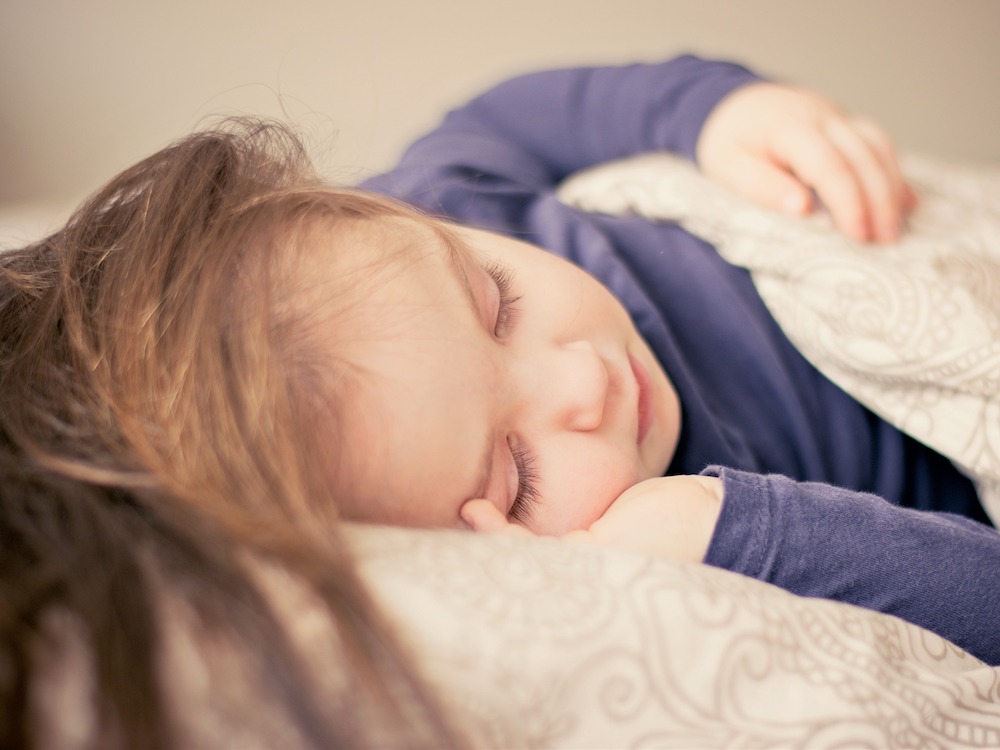Supporting children to sleep well
Published on Tuesday, 03 March 2020
Last updated on Monday, 02 March 2020

Ethnic and socioeconomic inequities in sleep health are evident by the time children are three, according to new research by the Sleep/Wake Research Centre at Massey University.
Research officer Dr Diane Muller recently completed a PhD analysing preschoolers’ sleep and found significant differences in the quality and amount of sleep among young children, with ethnicity and socioeconomic deprivation identified as key determining factors.
"The reality is inequities in sleep health parallel what we see in broader aspects of child health and wellbeing," said Dr Muller. "We have families in this country that are really disadvantaged and that shows through even in the sleep of children."
Dr Muller’s findings show Maori children are twice as likely as non-Maori children to have short and inconsistent sleep and preschoolers living in the most deprived neighbourhoods were four times more likely to have short sleep during the week than children living in the least deprived areas.
She says there are multiple and complex reasons for these differences and it is not the result of "families doing a bad job". The study found that differences in the material and financial resources of families, employment patterns, housing, social support, early childhood education services and child health all had an impact.
"It’s really easy for blame to be laid at the feet of individual parents but, from my interviews with mothers, it was clear they were trying their absolute best to support their children to sleep well, some families just have less resources and support and more stressors to deal with,” she said.
Dr Muller also hopes her research will highlight the importance of preschooler sleep health more generally.
"Early childhood is a significant time of growth and development so eating well, getting enough physical activity and enough good quality sleep are really important. I think the message is much stronger when it comes to nutrition and exercise, but less so with sleep.
How early childhood services can support children to sleep well
Early childhood services can play an important role in supporting children to sleep well and educating parents to maintain healthy routines at home.
This is what the Royal Children’s Hospital in Melbourne suggests educators can do in their setting:
- Provide a separate, supervised area that is reserved for sleep and rest. This supports the distinction between awake time and sleep time and helps to minimise distractions.
- Direct children who do not want to sleep into quiet, restful activities instead.
- Maintain good levels of communication with parents and other caregivers to ensure that you know of anything that might have disturbed the sleep of children in your care.
- Let parents and caregivers know about the rest that their child has had that day at your setting.
Information to share with parents
Many parents of children with sleep ‘issues’ are surprised when their toddler sleeps in an early childhood setting. If parents come to you with questions or issues about their child's sleeping patterns at home you may be a helpful source of reassurance.
- Acknowledge how hard it is to have a child who doesn't sleep and that sleep deprivation is hard for everyone.
- When parents ask about night time waking explain that there is no one strategy that works for every family and steer them to community resources such as the Ministry of Health.
- Help parents understand that it is important to be consistent in responding to night waking. When parents do the same thing every night their baby will have a better idea of what is expected.
- Ask about the family bedtime routine and explain that many babies and toddlers manage better with a well-established bedtime routine.
- Some babies and toddlers lose sleep if they are experiencing stress. Ask the parents to think about any changes in environment or family situation, which could be causing their child anxiety.
- White noise helps some young babies to drop off, a vacuum cleaner, a running tap, music or even a recording of white noise could help.
Related Articles

Rise and Shine How night nannies are helping sleepy NZ families
Night nannies are popular in other parts of the world, and it seems New Zealanders are starting to see the light when it comes to this form of child care.

Sleep time and TV time new findings
The link between screen time and disrupted sleep among children and how to reduce the impacts of this issue.
